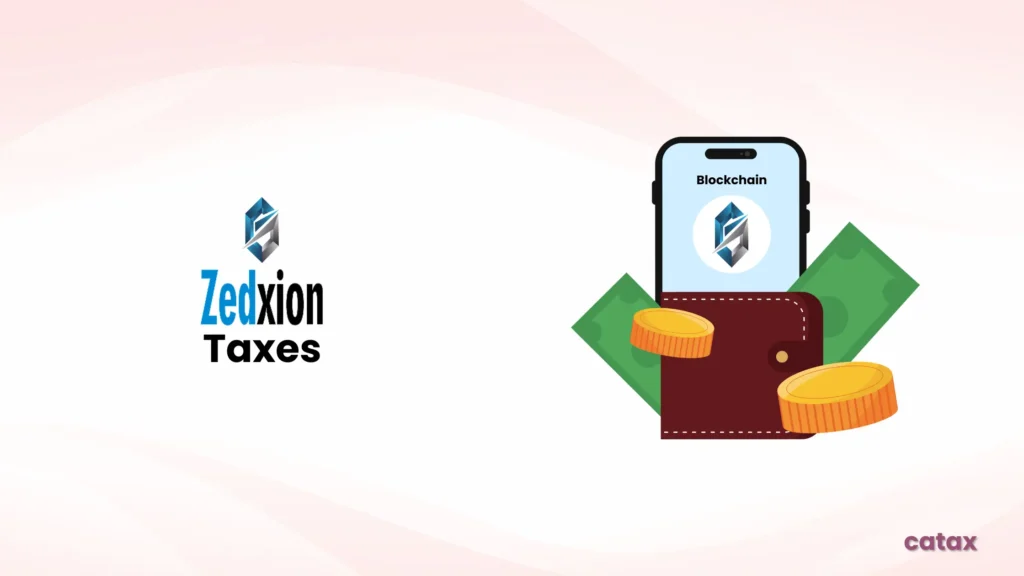Tax laws around cryptocurrency differ from country to country, and Juno( Juno) is no different. Whether you’re buying, selling, trading, or staking Juno, you could be liable for taxes relative to your country of residence and how you are using your crypto. It’s critical to understand how tax agencies in your country treat crypto activity so you can remain compliant and avoid penalties.
This guide will provide you with everything you need to know about how Juno is taxed, written in easy to understand language.

- How to Connect Your Juno Wallet to Catax
- Are Juno (Juno) Transactions Taxable?
- Can You Deduct Trading Fees and Other Costs?
- How Is Juno (Juno) Taxed Based on Holding Time?
- How Is Staking Income from Juno Taxed?
- Can You Use Juno Losses to Lower Your Taxes?
- How to Stay Compliant with Juno (Juno) Tax Regulations
How to Connect Your Juno Wallet to Catax
To properly track your Juno transactions and calculate your taxes, you can connect your wallet to Catax. It’s a straightforward process that ensures all your activity is captured automatically:
- Open your Juno wallet or block explorer (such as MetaMask, Trust Wallet, Ledger, etc.).
- Locate your public wallet address and copy it.
On Catax:
- Log in to Catax and select your country.
- Choose Chain and then search for Juno Wallet.
- Paste your public address and click Connect.
Catax will now sync your transactions automatically and help you calculate your tax obligations in real-time.
Calculate My Taxes ➤Are Juno (Juno) Transactions Taxable?
Yes, cryptocurrency transactions are considered taxable in most countries. How Juno transactions might be taxed will depend on how you use Juno:
- Selling Juno for profit: If you sell Juno at a higher price than you bought it for, then the profit will be taxed as capital gains.
- Swapping Juno for other cryptocurrencies: This is seen as a taxable event, even if you haven’t actually cashed out to fiat.
- Paying for goods or services with Juno: If the value of Juno has gone up since you bought it, using it to pay for something might result in a capital gains tax.
- Earning Juno from staking: Staking is taxed as income in many locales and this is taxable when you receive the staking reward.
- Getting paid in Juno: If someone pays you in Juno for a product or service, it would generally count as taxable income based on the value of Juno at the time.
Because crypto tax rules vary from one country to another, it’s best to check with local regulations or use a tool like Catax that applies the right rules based on your location.
Can You Deduct Trading Fees and Other Costs?
This is a frequently asked question from Juno users, and the answer will depend on the tax laws of your location. There are some countries that allow you to deduct expenses relating to your crypto transactions, including:
- Exchange fees charged when buying or selling Juno.
- Network fees you pay while transferring Juno between wallets.
Not every country allows all of these deductions. In a lot of countries, only the purchase price (cost basis) is considered and other fees are not deductible. To be sure, check your local country’s guidelines or seek the advice of a tax expert.
You can also check out our Country-Specific Guide for Crypto in Your country. This guide provides insights on regulations, tax implications, and compliance measures breifly explained for each country.
How Is Juno (Juno) Taxed Based on Holding Time?
The amount of tax charged on profits from Juno may depend on how long you held the tokens:
- Short-term holdings: If you sell Juno tokens in less than a year from obtaining them, you may pay tax rates closer to income tax rates.
- Long-term holdings: If you held your Juno for longer than a year, many countries have a lower tax rate for long-term capital gains.
- Flat rate countries: Many countries charge the same tax rate regardless of how long you hold your crypto.
Understanding your country’s approach to crypto holding periods can help you decide when to sell to minimize taxes.
How Is Staking Income from Juno Taxed?
Staking Juno can generate rewards for you, but those rewards generally come with some level of taxation. There are usually two ways staking income is treated by countries:
- Taxed as income: Some countries tax staking rewards as soon as you receive them. This means you need to report them as part of your annual income.
- Taxed as capital gains: Other countries wait until you sell or exchange your staking rewards. At that point, any profit is taxed.
It’s important to know how your country handles staking so you can report it correctly. If staking rewards are taxed as income, you may owe taxes even if you haven’t sold those rewards yet.
Can You Use Juno Losses to Lower Your Taxes?
Yes, several countries allow you to utilize a loss from selling Juno below the price you paid to lessen your tax liability. Here is how losses are generally processed:
- Offsetting gains: Losses from Juno can be used to offset gains from other crypto or even stock.
- Carrying forward losses: If you have no gains in the same year, some locations allow you to carry the loss forward to reduce your taxes in the future.
- No deductions: There are a few countries that will not allow any deductions for crypto losses so be sure to check your local Guidelines.
Make sure you keep records of all your transactions so you can prove your losses if needed.
How to Stay Compliant with Juno (Juno) Tax Regulations
As governments begin to crack down on crypto taxes, we must ensure that we comply with the rules and keep abreast of everything. You should do the following steps to remain compliant:
- Learn how your country taxes Juno: Is it treated as income, capital gains, or business income?
- Understand what costs you can deduct: Know whether trading fees, staking rewards, and security expenses are deductible.
- Keep accurate records: Track every Juno transaction, including buying, selling, trading, staking, and spending.
- Use a crypto tax calculator: A platform like Catax can help you calculate and file taxes correctly.
- Talk to a tax professional: If you’re unsure about anything, it’s smart to consult a tax advisor familiar with crypto laws in your country.


